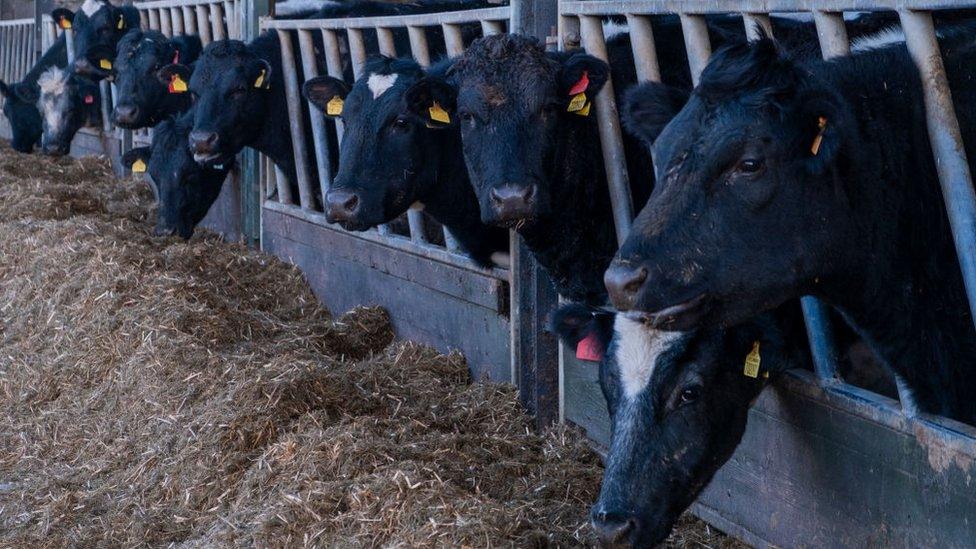Welsh tea: 'It's not easy to grow - it takes persistence'
- Published
Britain’s traditional cuppa is usually imported but one woman has started farming tea in Wales
As farmers and growers look for ways to diversify, one woman's decision to try to grow tea in Wales seems to have paid off.
Lucy George turned her fruit farm in Vale of Glamorgan into Wales' only commercial tea estate two years ago.
It hasn't been plain sailing trying to get the plant to withstand the weather, but this year seems to be good for tea.
She is now successfully growing and harvesting a crop which, she says, is 100% Welsh.
On sunny slopes in Peterston-super-Ely, just outside Cardiff, stand row upon row of tea plants.
They've taken several years to reach knee height, though the ones further up the bank in polytunnels are growing faster and have outpaced their neighbours.
It continues to be a labour of love, said Lucy.
Picking by hand is hard work as "you just aim for the top bud", and when the plants are all slightly different heights it can be back-breaking work, she said.
For the last two years, she's been experimenting with ways to make the enterprise work.
"I still have some doubts. It's certainly not easy to grow in Wales," she said.
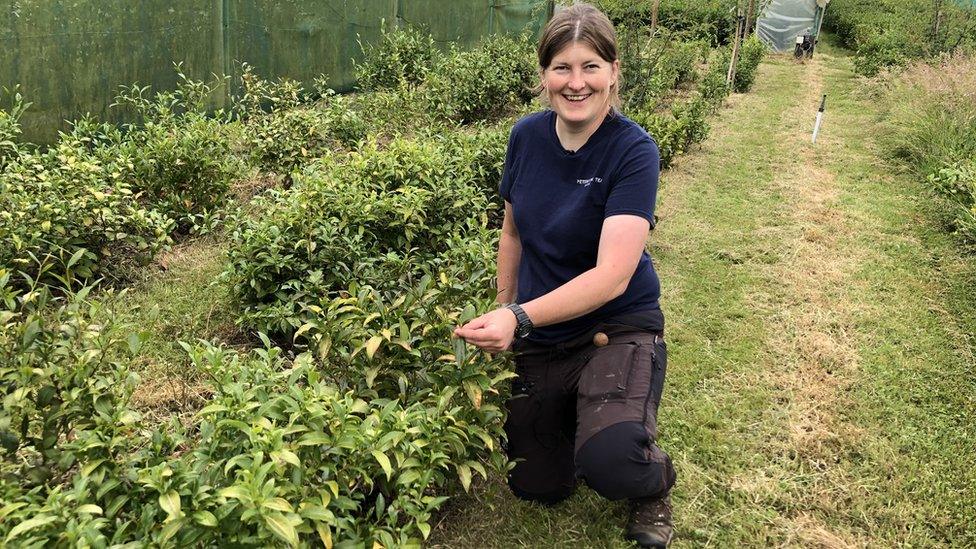
It can taken Lucy several hours to pick 200 grams of tea
"The climate is quite challenging, it's very marginal conditions for tea, but to some extent it lends itself to hopefully a better flavour tea, because it grows a lot slower than it would in more equatorial regions."
The tea she was now producing, she said, can claim to be totally Welsh tea.
"We actually grow from seed mainly, so we've got a big genetic diversity and more tolerance to Welsh weather conditions," she said.
"We've imported seed from all over the world to try to choose seed that will cope with more extreme conditions.
"We started in 2013 and a couple of years ago we started harvesting our own seed so we've now got plants coming through that are technically Welsh born and bred so, hopefully, it will stand up to conditions better."
The vast majority of the leaves that go into tea bags in the UK come from Kenya and India.
However, some plantations have sprung up in the UK in the last decade, including in Cornwall.
Much like grapes, where the particular soil in which they grow affects their flavour, tea grown in Wales will be unlike any other in the world.
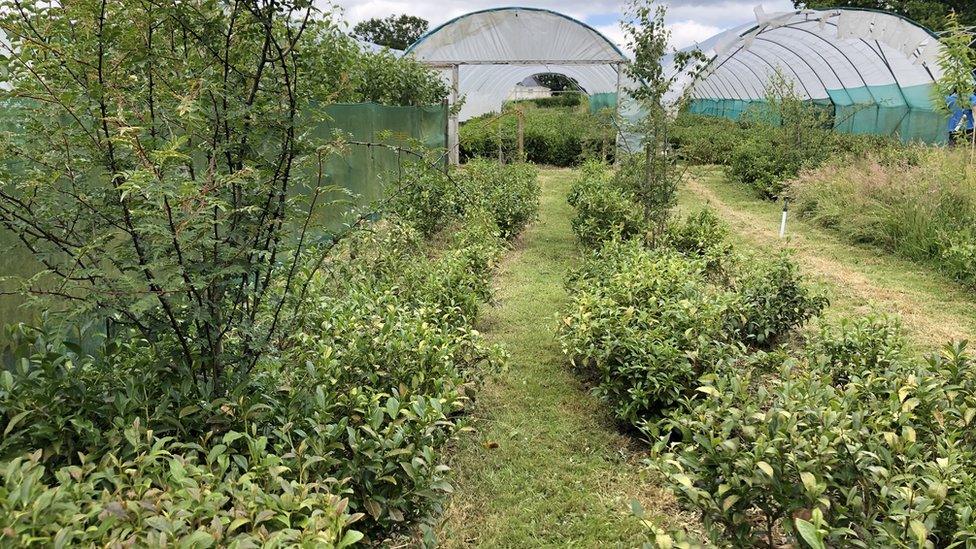
Tea is being grown in Peterston-super-Ely, just outside Cardiff
It means a premium product which Lucy can sell to prestige outlets.
But picking enough leaves for just 200 grams takes several hours and then there's the drying and processing.
So, does she think there's potential for more Welsh farmers following in her footsteps?
"I don't see why not, certainly for small scale," she said.
"I don't think it could be a large-scale commercial business, but I think there is a lot of potential for small farms to diversify - you just need a lot of persistence."

MABINOGI: LOST LEGENDS AND DARK MAGIC: Listen to the fantasy adventure series, based on medieval Welsh mythology
FIND SOME TIME TO READ: The Aberystwyth Book Club discusses Maggie O'Farrell's latest novel

- Published5 March 2021
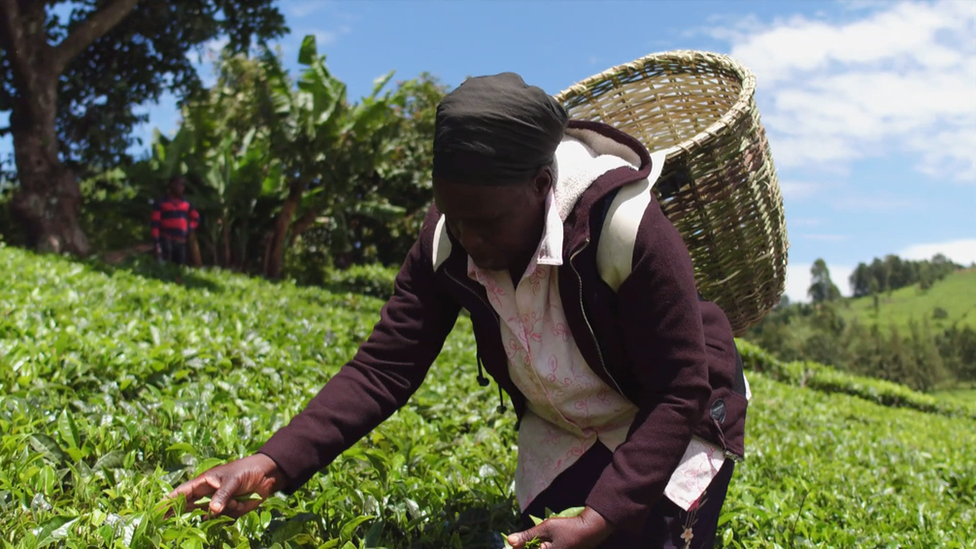
- Published12 January 2021
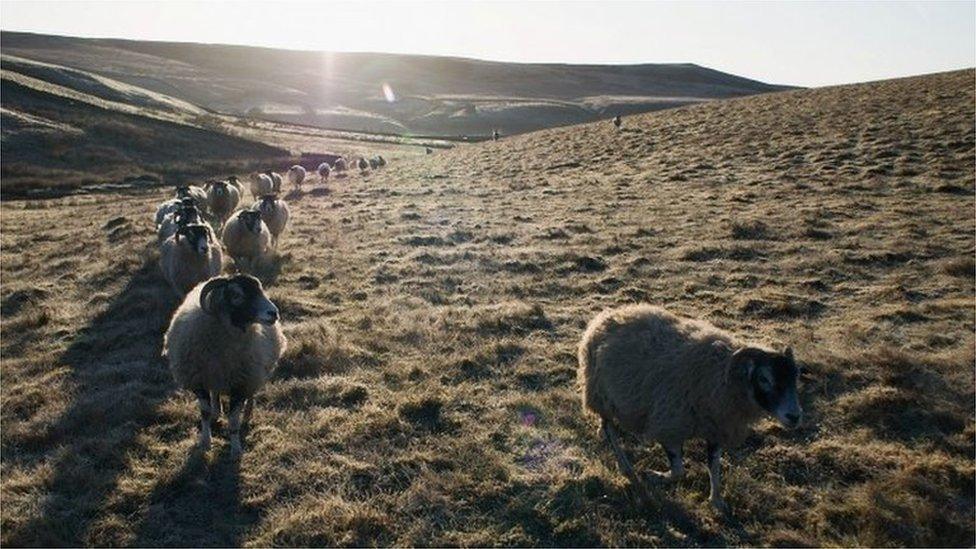
- Published16 December 2020
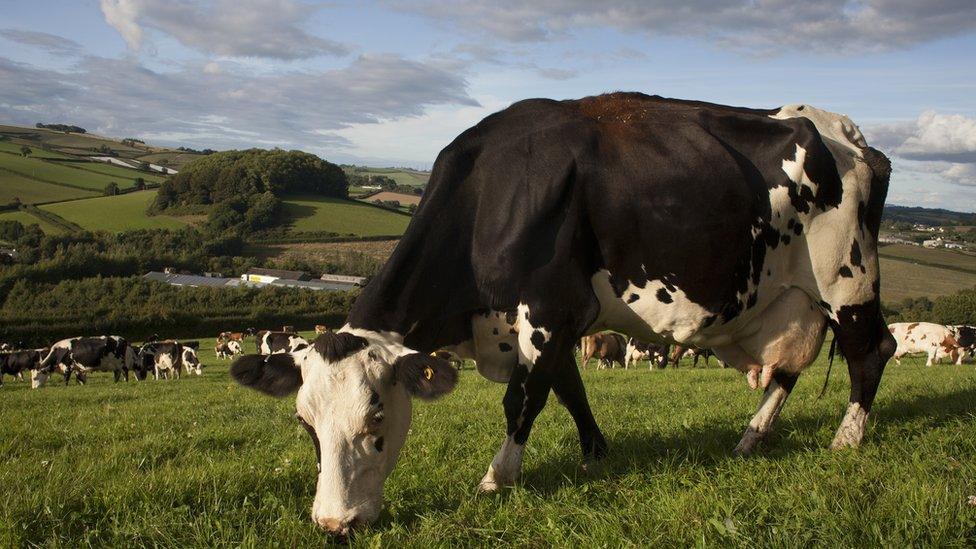
- Published8 December 2020
